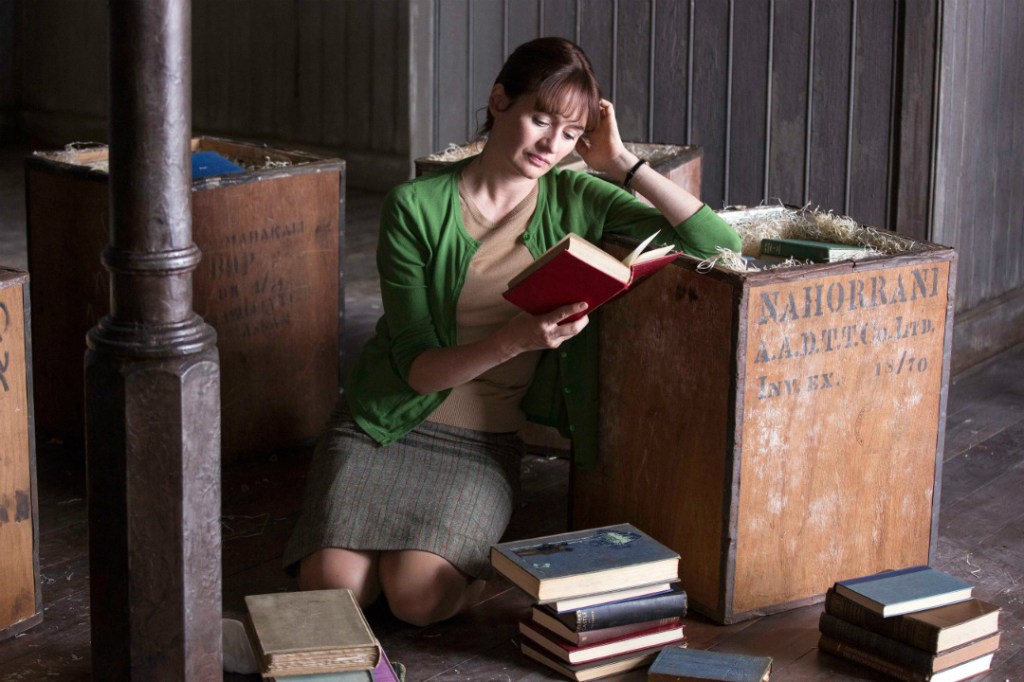 British actor Bill Nighy illuminates anything he chooses. In Isabel Coixet’s The Bookshop, his characterization of a voracious literary hermit is so interesting, one almost wishes the procession of every other average performance in the film would vanish and give way to his own snobbish, cloistered past.
British actor Bill Nighy illuminates anything he chooses. In Isabel Coixet’s The Bookshop, his characterization of a voracious literary hermit is so interesting, one almost wishes the procession of every other average performance in the film would vanish and give way to his own snobbish, cloistered past.
Alas, the film remains mostly focused on middle-aged Florence (Emily Mortimer) and her noble fight to thrive as a bookshop owner in a small seaside English village where every aristocrat wants to push her out of the way and most common folk wish to gossip and carry on with their very British way of life.
But that’s not the only problem with the film. It’s an extremely prosaic affair, and one that looks, feels and sounds like a thousand other films curated from a respectably loved novel (Penelope Fitzgerald’s of the same name) and aimed at a respectable, mature art-house audience looking for easy emotions and prim ideas.
The very definition of prim is played to the hilt by Mortimer as a recently widowed woman who buys up a historic house on the edge of town and converts it into a bookshop at the frustration of local society damsel Violet, played by Patricia Clarkson in yet another role that heightens the quiet insolence she’s best known for.
As Florence’s business grows, the corruption and maneuvering of Violet slowly impedes her dream. The only friend Florence seems to have, outside of a local girl (Honor Kneafsey) who works after school, is the older Edmund (Nighy). Seen only in abbreviated walks by the beach or through short notes he has hand-delivered, a small relationship develops between Florence and Edmund through their love of literature. He especially becomes enamored with Florence after she recommends and sends him a copy of Ray Bradbury’s Fahrenheit 451, in which he promptly replies to send any and all Bradbury novels she can.
The relationship (that eventually does turn face to face) between Nighy and Mortimer is handled delicately. We sense their shared appreciation of art and their sense of loss in life. The Bookshop works best when it settles with their unforced conversation over tea and cake or the almost feline way in which they open their packages that they’ve sent to each other.
The rest of the film loses all delicacy when it becomes mired in creaky narrative. One of the worst diversions is the performance of James Lance as a snooty playboy named Milo who does the sneaky bidding of Violet. It’s a performance that borders on farce and only magnifies the dusty conventions of a film rooted in the dusty conventions of mid-20th century England and its David versus Goliath overtones.
During certain moments, the film does come alive and Mortimer wells up some vivid anger at the unified front of a town pushing her out of the way, but from the opening voice-over, one understands exactly what they’re getting with the The Bookshop and its tidy examination of upper class stomping out the lower class. In that regard, the use of Fahrenheit 451 is an apt representation of suppression.
The Bookshop opens in the Dallas/Fort Worth area on Friday, August 31.



